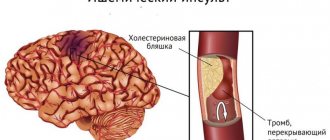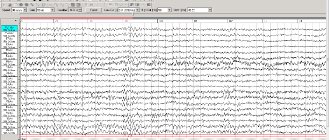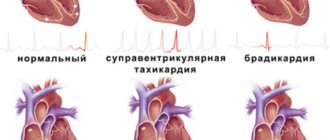Such an unpleasant problem as dizziness is familiar firsthand to people suffering from pressure changes, and it is especially common in women. Dizziness can occur as a result of either high or low blood pressure. Any deviation from normal blood pressure can lead to disastrous consequences, which is why it is so important to monitor personal indicators and not ignore the “signals” of the body. To determine how to help a patient, it is necessary to understand at what pressure the dizziness occurs - further actions will depend on this.
Features of dizziness in hypertension
It is not an increase in blood pressure that provokes dizziness, but sudden changes in data that confuse the brain. When you feel dizzy and your blood pressure rises, your organs stop receiving the volumes of oxygen necessary for normal functioning. This is what explains dizziness with pressure both in hypotensive patients and in patients with hypertension. At this time, the patient may feel very lethargic, headaches may begin, and signs of intoxication may appear. In addition, dizziness after high blood pressure is provoked by careless sudden movements.
Anatomical certificate
The first thing you should know: dizziness with hypertension is a dangerous condition. When high blood pressure is accompanied by dizziness, this indicates serious problems. From a physiological point of view, there cannot be dizziness with high blood pressure. This is explained very simply.
You can get more information about this and many other aspects of health related to blood pressure, osteochondrosis, atherosclerosis, ask your questions to Dr. Shishonin and just chat by joining our community - the Club of Former Hypertensive Patients
.
If we turn to the anatomy of the human body, and in particular to the cervical spine, we can see the following picture. There are seven vertebrae in the cervical region. The first connects to the skull, with each vertebra having processes and holes through which the vertebral arteries pass. The skull also has identical openings through which the arteries connect into one vessel and supply the brain. The first to receive nutrition is the brain stem and the vascular center, which regulates the activity of the heart.
At the bottom of the brain stem is the cerebellum. It is he who plays the most important role in the functioning of the human vestibular apparatus. If its nutrition is disrupted, dizziness occurs.
With high pressure, a lot of blood enters the cerebellum, as the heart begins to work more actively and pump it with greater force. A paradox arises here, since in this case the nutrition, on the contrary, will be good, which means your head should not be dizzy. What could be the matter?
Dizziness with low blood pressure
Dizziness with low blood pressure can appear at any time, but most often before this, blood pressure drops below 100/60 mmHg. Art. This is a very dangerous condition that can provoke the development of serious diseases - ischemia and tissue hypoxia. They slow down the transmission of impulses and worsen the nervous system's response to external stimuli.
Low blood pressure and dizziness directly indicate hypotension, which must be treated rather than tolerated. Unfortunately, many do not attach serious importance to these symptoms, since the disease is mistakenly considered not life-threatening. Such negligent attitude towards one's health often leads to serious consequences. The most dangerous complication of this disease is brain atrophy. You can also find out about the presence of hypotension and low blood pressure by other symptoms:
- intoxication;
- throbbing pain in the occipital region;
- loss of consciousness;
- stuffy ears;
- trembling fingers;
- coldness of the extremities.
These symptoms do not necessarily accompany hypotension all the time, but occur with a sudden change in position. This occurs due to the fact that the heart does not have time to deliver blood to large vessels, which is necessary for the normal functioning of all systems in the body. But even if you experience a condition where you have low blood pressure and feel dizzy, don’t despair. A problem noticed in time and immediately taken measures will help protect against more serious diseases, often accompanied by hypotension.
Important! Every person needs to know their normal blood pressure, since sometimes generally accepted norms deviate in one direction or another. Your attending physician or local therapist in a regular clinic will help with this.
If you feel dizzy often
Benign paroxysmal positional vertigo (BPPV, otolithiasis)
With BPPV, attacks of dizziness last a few seconds, less often minutes, and sometimes nausea occurs. This usually happens when a person lies down and then gets up, or if he throws his head back. The reason for this condition is that in the labyrinth - an important part of the vestibular apparatus - calcium carbonate crystals appear, which move, irritate the receptors, and the brain ultimately receives conflicting signals. To confirm this diagnosis, the doctor, after talking with the patient, performs a Dix-Halpike test.
BPPV is treated with a repositioning maneuver in the Brandt-Daroff, Semont, or Epley space. In most cases, there is little point in using special medications to treat dizziness - this is done only if the attacks are very frequent.
Vestibular neuronitis
Vestibular neuronitis begins abruptly, a person constantly feels dizzy, feels nauseated, vomits, and finds it difficult to walk. The doctor may also notice spontaneous vestibular nystagmus, and a positive horizontal head thrust test will indicate this disease.
The hearing is preserved (if not, then we are talking about another disease - labyrinthitis). Why do these symptoms occur? Vestibular neuronitis is a viral or bacterial inflammation of the vestibular ganglion, that is, the nerve ganglion in the internal auditory canal. There are very few effective antiviral drugs, and all of them are aimed at combating specific viruses. And since it is impossible to understand what exactly caused vestibular neuronitis, we can only wait: the worst period lasts no more than 1–2 days. The healing process can only be accelerated with the help of steroidal anti-inflammatory drugs.
Meniere's disease
With Meniere's disease, repeated attacks of severe dizziness last for minutes or even hours, on one side there is noise and pressure in the ear; Nystagmus, nausea, vomiting occurs, and he loses his balance. During audiometry (test of hearing acuity), the doctor will detect hearing impairment at low frequencies. This disease may take months or years to appear. It occurs due to increased pressure of endolymph (fluid) in the inner ear, which disrupts its function. If the diagnosis is confirmed, the doctor may prescribe diuretics (diuretics - hydrochlorothiazide, acetazolamide) and a low-salt diet. If the attacks significantly reduce your quality of life, your doctor will also prescribe antiemetics (domperidone, metoclopramide), benzodiazepines (diazepam, lorazepam), or antihistamines (dimenhydrinate, diphenhydramine).
Hunt syndrome
Acute dizziness and/or hearing loss, unilateral paralysis of the facial muscles, ear pain, rashes in the ear canal and auricle - this is how Hunt's syndrome manifests itself, damage to the geniculate ganglion (part of the facial nerve) by herpes zoster virus. Treatment uses a specific antiviral drug, acyclovir, and corticosteroids.
Maze Shaking
If the labyrinth was damaged during a head injury, this will manifest itself as dizziness, nausea, vomiting and an inability to maintain balance. Gradually, over days or months, this condition passes. However, benign paroxysmal positional vertigo or, in rare cases, Meniere's disease may then occur.
Migraine vertigo (vestibular migraine)
Typically, migraine vertigo attacks last minutes or hours. In this case, in addition, visual disturbances typical of a migraine aura often occur (flashes, dots, rainbow stripes flashing before the eyes, narrowing of the visual fields, etc.), fear of light and sound. However, headaches do not always occur. A person may notice that such a condition is provoked, like a regular migraine, by certain foods, smells, situations, etc. In this case, a neurologist can prescribe drugs for prevention: triptans or tricyclic antidepressants in small doses, antiepileptic drugs, beta blockers. There are also special exercises for vestibular rehabilitation.
Dizziness with multiple sclerosis
With multiple sclerosis, the membranes of nerve fibers are affected in humans, and this causes various disorders, mainly motor ones. However, in 20 percent of cases, this disease manifests itself as attacks of dizziness, and resembles vestibular neuronitis. However, the symptoms last longer - several days or weeks. The doctor may prescribe a short course of corticosteroids to help the patient feel better.
Transient ischemic attack (TIA)
This condition is very similar to a stroke, but it resolves on its own and does not damage brain tissue. In addition to dizziness and loss of balance, a person may experience numbness on one side of the body, weakness, speech may be slurred, confusion may occur, double vision or loss of vision, memory loss, difficulty swallowing, and urinary or fecal incontinence. All this happens due to the fact that a thrombus or embolus (a particle of a blood clot, atherosclerotic plaque, altered heart valve) clogs a brain vessel for several minutes or hours. Since patients with TIA have an increased risk of stroke, if these symptoms occur, be sure to consult a doctor as soon as possible.
Perilymphatic fistula
Perilymphatic fistula occurs after traumatic brain injury, barotrauma (damage due to a sharp change in atmospheric pressure) or heavy load. It manifests itself as dizziness and/or hearing loss after sneezing, heavy lifting, straining, coughing and loud noises. This happens due to damage to the membranes in the middle and inner ear. It is quite difficult to diagnose this condition; for this, the doctor prescribes a computed tomography scan. In some cases, a perilymphatic fistula goes away on its own, but to speed up the process, you need to stay in bed, lie on the bed with the head of the bed raised, and avoid straining. However, if there is no effect after a few weeks, you should resort to other methods of treatment, possibly requiring surgery.
Semicircular canal dehiscence syndrome (Minor's syndrome)
Dizziness with Minor syndrome is provoked by coughing, sneezing, loud sounds, and the Valsalva maneuver. Nausea or instability may also occur during short episodes of dizziness. In some patients, hearing deteriorates (this is manifested on the audiogram as an air-bone interval). In this disease, the bone covering the superior semicircular canal becomes thin or even disappears, causing symptoms. It should be said, however, that this syndrome is extremely rare.
Cogan syndrome
This rare autoimmune disease manifests itself as interstitial keratitis, that is, clouding in the middle and deep layers of the outer layer of the eyeball - the cornea. The disease is also expressed in attacks similar to those of Meniere's disease (dizziness, nausea, vomiting, noise and ringing in the ears, hearing loss, loss of balance). An illusion of vibration of surrounding objects (oscillopsia) may occur. Steroids and other immunosuppressants are prescribed for this disease.
Rotational occlusion of the vertebral artery (archer syndrome)
With this rare disease, dizziness appears when a person turns his head in one direction (less often in both): the vertebral artery is compressed, which leads to this condition. Perhaps the reason for this is a degenerative disease of the spine or congenital foraminal stenosis (narrowing of the intervertebral foramen). Treatment options for the disease range from gentle treatment to conservative and even surgical intervention.
Wallenberg syndrome
Sudden dizziness and imbalance are symptoms of Wallenberg syndrome. Double vision, weakness in one hand, constriction of the pupil, and impaired temperature and pain sensitivity on one side may also occur. All this occurs due to blockage of the posterior inferior cerebellar or vertebral artery, as well as traumatic dissection of the vertebral artery. Treatment in this case is symptomatic.
Cerebellar stroke
With a stroke of the cerebellum (the part of the brain responsible for coordinating movements and maintaining balance), sudden dizziness occurs with nausea and vomiting, nystagmus, impaired movement of the limbs, and the person falls to one side. This usually happens to people over 60 and those at increased risk of stroke (people with diabetes or hypertension). To confirm the diagnosis, the doctor will urgently perform a computed tomography or magnetic resonance imaging scan.
Episodic ataxia type 2
This genetic disease manifests itself in childhood and adolescence: the child experiences severe dizziness, movement disorders, nausea, and vomiting. Attacks can last from several hours to several days. To treat an acute condition, your doctor will prescribe acetazolamide.
TREATMENT OF SYSTEMIC VERTIGO
If vertigo lasts more than a few hours or days, a person's quality of life can be severely affected. Therefore, the doctor prescribes medications that reduce symptoms. First of all, antihistamines are used (dimenhydrinate, diphenhydramine), as well as drugs that in addition have a sedative effect - antiemetics (domperidone, promethazine, metoclopramide, ondansetron) and benzodiazepines (diazepam, lorazepam, clonazepam, alprazolam).
Rehabilitation can also be effective - special exercises that will help cope with problems of the vestibular system. The most useful thing is not to delay the start of classes.
Dizziness with high blood pressure
Hypertension is widespread among the adult population of the Earth, so it is easily called the most common disease. Sometimes people do not realize that they are sick, attributing poor health to overwork. Dizziness with hypertension occurs in every second patient, and this symptom cannot be ignored. Along with it, patients also complain of:
- noise in ears;
- intoxication;
- weakness;
- throbbing pain in the head area.
Hypertension - what worries patients
05.Jul.2021
QUESTION: “Can I suspect hypertension myself?
I often have tinnitus. Is this a sign of high blood pressure? ANSWER:
Hypertension has different symptoms. Among them: uneven gait (a person literally staggers from changes in pressure), headaches (both strong and weak, usually occurring in the morning in the back of the head or temples), tinnitus, dizziness, nausea, nosebleeds, insomnia, redness of the face, “floaters” before the eyes or fog in the eyes... Often, patients are bothered by pain under the shoulder blade, in the chest, in the fingers. But, alas, hypertension does not manifest itself for a very long time. Therefore, it is necessary to regularly monitor your blood pressure levels - purchase a tonometer.
QUESTION: I feel comfortable with high blood pressure.
Conversely, I feel bad when the pressure drops. Is it necessary to treat hypertension in such a situation? ANSWER:
Some patients do not feel pressure surges at all; there are often cases when the body adapts, and at such moments people, on the contrary, feel very well. It is very dangerous. If hypertension is not treated, a person may very soon develop a stroke or coronary heart disease. In addition, high blood pressure increases the risk of premature death. There are such sad figures: in 68 out of 100 cases of myocardial infarction and in 75 out of 100 cases of stroke, patients had an increase in blood pressure, which these people were not sufficiently controlled. If at the initial stage you can fight hypertension with a diet, a correct lifestyle, regularly measuring your blood pressure and preventing it from increasing, then at more serious stages you can no longer do without medications.
QUESTION: What blood pressure is considered normal?
ANSWER
: The biggest debate among doctors and patients is about what pressure is considered normal. So, up to 120/80 is the norm, from 120/80 to 130/80 is high blood pressure, from 130/80 to 139/89 is already first-degree hypertension, which requires drug therapy. But, as hypertensive patients note, at different times of the day and depending on anxiety, after physical activity, drinking alcohol or smoking, these numbers can fluctuate significantly. Therefore, information about how quickly after a jump blood pressure returns to normal is very important for the attending physician. It’s good if it takes no more than 30 minutes to stabilize. Moreover, the less stress or physical activity, the sooner the pressure should return to its original level.
QUESTION: How many times a day do I need to measure my blood pressure before my doctor can make a diagnosis?
ANSWER:
The diagnosis of “hypertension” is made to a patient only based on the results of multiple pressure measurements (at least five times a day - measurements will have to be taken both at night and early in the morning), performed on different days. When blood pressure increases slightly, measurements using a tonometer should be carried out over several months.
QUESTION: I am taking medications for hypertension.
I recently discovered that my husband’s blood pressure is also fluctuating. He started taking my pills, but they don't help. Why? ANSWER:
If you have hypertension, you should never prescribe medications yourself. Very often, people use drugs that were not prescribed to them, but recommended by neighbors, friends, and relatives. Under no circumstances should this be done. Only a doctor can choose the dosage of medications after examination and examination. The doctor prescribes a medicine based not only on the diagnosis, but also takes into account: the patient’s age, the stage of the disease (there are 3 stages of hypertension), the condition of the heart (is there angina pectoris, heart failure, cardiac arrhythmias), does the patient have obesity, diabetes mellitus, bronchospasm and other ailments. Antihypertensive (pressure-lowering) drugs often have a very powerful effect, and the consequences of a sudden and severe decrease in blood pressure can be unpredictable. In addition, the dosage during the entire treatment period can be changed repeatedly, both upward and backward, depending on the patient’s condition. It must be remembered that the full effect of taking the drug often appears only after 1-2 weeks.
QUESTION: I’m not yet 50 years old, I follow a diet, take pills, but my condition is not improving.
The pressure is still high. What's the matter? ANSWER:
In this situation, one can suspect that hypertension is not caused by hereditary causes, bad habits (excess fatty and salty foods, tendency to overeat, sedentary lifestyle, smoking) or older age and poor vascular condition, but is associated with other health problems. Among the ailments that increase blood pressure are various diseases of the kidneys and renal arteries, thyroid disease, problems with the adrenal glands, heart disease, and brain injuries. In this case, the patient will have to undergo various studies. If the underlying disease is not treated, hypertension will not go away - medications that lower blood pressure will not help. An examination is required. It is impossible to make a diagnosis in absentia.
Afterword:
Today, arterial hypertension is diagnosed in every fifth Russian. And after 50 years - every second person. It is impossible to completely get rid of the disease, but it is imperative to control your blood pressure, otherwise there is a high risk of developing deadly ailments such as stroke, heart attack and coronary heart disease... Don’t neglect your health, take five minutes, at least in the morning and evening hours, to measure your blood pressure .
Prevention
Low or high blood pressure and dizziness can be easily prevented if you promptly treat diseases accompanied by these symptoms. For this, not only pills, which today can be purchased freely in pharmacies, are suitable, but also self-discipline. In particular, the following rules must be adhered to:
- Avoid overwork and don’t get nervous over trifles. Walk more in the fresh air, especially before bed. You definitely need to get enough sleep at night. You can also do sports - walking, yoga or swimming.
- Adhere to the principles of a healthy diet - remove all unhealthy foods that contain a lot of salt, fat and traces of smoking. Eat more fruits and vegetables, as well as foods rich in vitamins and minerals.
- Control your calorie intake, as excess weight causes high blood pressure. It is better to eat more often, but in small portions, than to starve all day and gorge yourself in the evening.
- Monitor your blood pressure readings and keep a record of measurements to calculate your operating pressure. Any deviation from this indicator will be a reason to consult a doctor.
What to do
Before looking for a “universal pill,” you need to understand that hypertension and hypotension are different diseases and therefore cannot be treated with the same remedy. The same can be said about dizziness, which is a consequence of surges in blood pressure. The first step to recovery is to measure your blood pressure. His readings will help determine why it is necessary to treat – high blood pressure or low blood pressure. The doctor will be able to immediately explain what is best to take for low blood pressure and dizziness, or what medicine to take for high blood pressure.
After the call, the attending physician needs to calm down and take a comfortable position. At home, it is better to lie down on the sofa and free yourself from tight fasteners that are squeezing blood vessels. Free air circulation promotes rapid penetration of oxygen into the body. Therefore, if there is someone else in the room, you can ask to open the window. If you have anti-nausea medications in your medicine cabinet, you should take them and calmly wait for medical help to arrive.
If the problem occurs unexpectedly at work or on the street, then you need to look for a quiet place that allows you to take a horizontal position - a bench in the park or a desk in the office, leaning on the wall. This will allow you to maintain your balance and focus on one point. At this time, you need to breathe calmly and deeply. In addition, before the doctors arrive, you can use folk wisdom and eat dark chocolate - for hypotension, or drink valerian tincture - for hypertension.
You should not ignore dizziness, as they may be the first symptoms of heart disease, which, in turn, often lead to serious complications and death. Timely consultation with a doctor will help prevent the development of hypertension or hypotension, and therefore prevent or delay the onset of heart attack and stroke.









